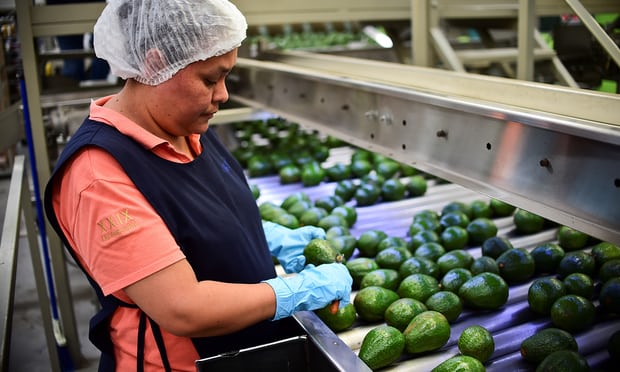The growing global appetite for avocados has been blamed for a litany of sorrows, from self-inflicted stab wounds to stopping young people from buying their own homes, according to The Guardian.
But in Mexico, the world’s biggest producer, what used to be a dietary staple is now too expensive for many ordinary consumers. And, now the country where the avocado is believe to have originated is considering the unthinkable: importing avocados from abroad.
“It seems laughable, being able to bring in avocados from other areas at a time when we are so successful in exporting [avocados] … but we’re not ruling it out,” said economy secretary Ildefonso Guajardo.
“It’s practically the price of success. Avocados are so popular on the international level that it’s generating price pressure in the national market.”
Avocados are believed to have first been cultivated in the Mexican state of Puebla, and they have become big business for the country, which accounts for almost half the world’s production.
Government statistics show avocado exports now bring more money into the country than petroleum.

An avocado packaging plant in Uruapan, Mexico … ‘Avocados are so popular on the international level that it’s generating price pressure in the national market.’ Photograph: Ronaldo Schemidt/AFP/Getty Images
Many towns have grown wealthy on the so-called “green gold” – which has also been blamed for a spate of illegal deforestation in the country.
One town – Tancítaro in Michoacán state – ships out more than a million dollars’ worth of avocado every day, and growers there even organized an armed vigilante group to fight off extortion and threats from criminal cartels.
But the success of the industry has driven up prices to unprecedented levels in recent months: avocados regularly sell for more than 80 pesos (£3.40) per kilo in many markets – the same value as Mexico’s daily minimum wage.
Producers say the price spike has been driven in part by a 20% shrinkage in the crop, but others point to the growing international demand, and warn that high prices are here to stay.
Click here for full article
Source: https://www.theguardian.com/



1 comment
Interesting article, a lesson in economics. It is odd that “economic success” never seems to benefit the local people and laborers who produce the product. This is a form of “extraction economics.”
Comments are closed.